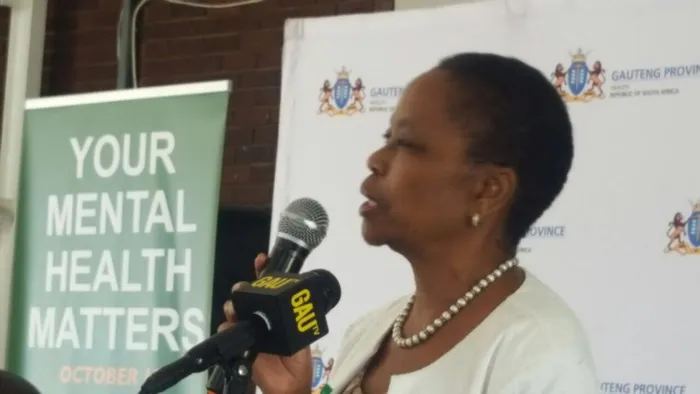
Weskoppies psychiatric hospital chief executive Maureen Mabena says the stigmatisation of mental illness was very high within the South African society. Picture: Jonisayi Maromo/ANA Weskoppies psychiatric hospital chief executive Maureen Mabena says the stigmatisation of mental illness was very high within the South African society. Picture: Jonisayi Maromo/ANA
Pretoria - Stigmatisation of mental illness is rife within South African communities to the extent that even healthcare professionals tending to the psychiatric patients at times are treated with similar reprehension, chief executive of Weskoppies Psychiatric Hospital in Pretoria said on Wednesday.
Maureen Mabena was speaking during an open day ahead of the October 10, World Mental Health Day.
"There are days when we really lose it as well and society allows us, because we are not labelled [as psychiatric patients]. Some of us are labelled because we work in an environment where we deal with psychiatric patients. I'm not sure if it's a myth or reality but they say you don't really see a difference between them and those people they treat. Which is fine. I accept it. It's because we allow ourselves to be human and we don't pretend. That shouldn't be a problem," she said.
"We need to deal with the stigma. That stigma starts at home continues at our health facilities. You take your loved one there and other patients and other healthcare workers think you are bothering them with this person that doesn't belong. But how come we belong if we have TB [tuberculosis], HIV and whatever condition? Some of these conditions like hypertension and diabetes are lifestyle conditions but we don't judge those people."
Numerous suspects in on-going court cases are sent to the heavily-guarded facility by South African courts, for evaluation.
On Wednesday, Mabena said that the healthcare professionals are geared up to deal with any discrimination.
"You see, we are normal. We can defend ourselves. We can advocate for ourselves, but the biggest challenge is with the psychiatric patients. They are not allowed to act normal, like you and me. When they get angry, even at home, they are treated and judged harshly. People say: 'You have started'. If they go to clinics and meet healthcare practitioners who don't understand mental illness, they are not assisted and prioritised. They get impatient. They need to be prioritised to manage their agitation," said Mabena.
"Just like you and I, when you don't get poor service at a shop, you often lash out. When somebody says they will assist you, then you calm down. It's just like that. The stigma doesn't allow psychiatric patients to be people. We [think] we are the only people allowed to have emotions, and that is the biggest stigma we must deal with. They are normal human beings."
The open day at the institution is part of the Gauteng department of health's ongoing efforts to raise awareness about mental health.
The event was hosted under the theme “Together Promoting Mental Health Rights – Break the Stigma, Break the Silence”.
